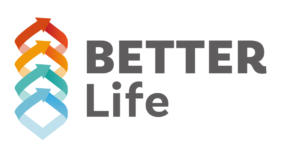 Name of the project: Bringing Excellence to Transformative Engaged Research in Life Sciences through Integrated Digital Centres
Name of the project: Bringing Excellence to Transformative Engaged Research in Life Sciences through Integrated Digital Centres
Acronym: BETTER Life
Grant provider: European Commission
Programme: Horizon Europe
Duration: 2022 – 2025
Web site: https://betterlifehorizon.eu/
Project Leader at Poznań University of Life Sciences, PULS (Poznań, Poland): Prof. dr. hab. Piotr Tryjanowski
Investigators at PULS: Dr. ViktóriaTakács, Dr. Łukasz Dylewski, Dr. hab. Paweł Sienkiewicz, Marta K. Nowak, MSc
The general objective of the project “Bringing Excellence to Transformative Engaged Research in Life Sciences through Integrated Digital Centres” — short BETTER Life — is to establish the EU Digital Centre of Excellence for Socially Engaged Research in Life Sciences (hereinafter EU BETTER Life Centre). The Centre will be an inter-institutional support structure for developing capacities of early career researchers (PhD students and researchers not yet fully independent) (hereinafter ECR) aiming to foster socially engaged research (SER) to tackle societal challenges in their surrounding ecosystems while consolidating the EU BETTER Life Centre as a world reference in planning, supporting, and implementing SER in life sciences.
EU BETTER Life Centre addresses the issue of research engagement and collaboration as a key element to generate wide impact in the surrounding ecosystems and diverse stakeholders. Recent studies agree that there is a growing need for collaborative and interdisciplinary research in addressing global challenges and that ECRs play a key role in challenging the existing academic barriers and consolidating the field. In Europe, this claim is supported by the MORE4 Report that shows that only 32% of researchers collaborate with non-academic sectors or receive any transferable skills training and only 24% of researchers have moved to other sectors during the research career (a decreasing number compared with previous reports). This phenomenon is similar in the universities that are a part of this consortium – there is a need to establish support structures for early carrier researcher to upgrade soft skills, developing tools, and find the connections with the surrounding ecosystem to socially engage their research. Our consortium is committed to address this challenge in life sciences, which is the key field of strength across the institutions, by engaging the partners in creating the support structures to build individual, intra-institutional, and inter-institutional capacities, engaging with the surrounding ecosystem, and constructing in international framing guidelines.
